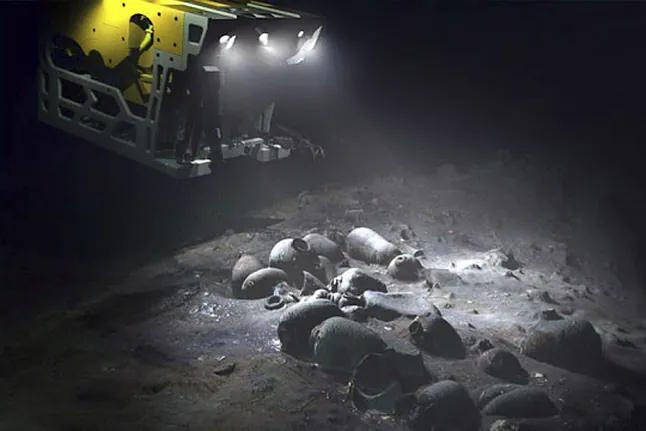The case before the Permanent Court of Arbitration PCA No. 2023-37 Sea Search-Armada, LLC (United States) against the Republic of Colombia, being heard in London, could determine the legal future of the underwater cultural heritage of the galleons from the Carrera de Indias, meaning the shipwrecks of thousands of Spanish vessels that sank in storms and attacks in American waters between 1506 and 1778. Currently, the Permanent Court of Arbitration is reviewing a request from six indigenous nations in the Potosí area (Bolivia) linked to the Carrera de las Indias through the silver extracted and transformed by their ancestors under forced labor conditions, which led to the displacement of the Carrera's ships to Spain.
Pacajes, Charkas, Lípez, Killakas, Carangas, and Chichas, six indigenous communities recognized as nations in Bolivia's Constitution with international legal personality, seek to appear as amicus curiae (a procedural figure allowing a third party not involved in a case to provide an informed opinion) in the Sea Search Armada and Colombia case before the Permanent Court of Appeal. Their aim is to "oppose the international right of culture to the international treasure hunting industry, legal in Colombia," and the political complicity of their partners in Europe and America, including Spain, whose government they criticize for its inaction. Their priority is to prevent treasure hunting companies, backed by states, from accessing the metals extracted by their ancestors.
Some context: the litigation between Sea Search-Armada, LLC and Colombia dates back to their agreement to split the remains of the San José, a Spanish State ship, a war galleon sunk in 1708 in an attack by English-flagged ships in waters adjacent to the Colombian coast, while carrying a vast array of material and artistic treasures. Its sinking was a well-documented act of war. The San José departed from Cartagena de Indias alongside its twin, the San Joaquín, and other ships of the Spanish fleet but ended up at the bottom of the sea in an unknown location near the coast. In 1982, Sea Search-Armada (then called Glocca Morra) announced it had found its remains and reached a collaboration agreement with the Republic of Colombia to split the treasure equally. Colombia adjusted its legislation to accommodate this public-private partnership and collaborated with the treasure hunters for 33 years until breaking ties with Sea Search-Armada. Since 2015, Colombia has aimed to explore the wreck alone or with other companies, stating since 2020 that it will not exploit it for economic purposes.
Now, Sea Search-Armada claims 50% of the ship's wealth ($10 billion) as agreed with the country's officials. Colombia, which has changed its policy regarding partnering or breaking with Sea Search-Armada several times, ultimately decided in 2020 to declare the San José wreck as an inalienable national heritage, arguing that other treasure hunters alongside its Navy located the galleon and owe nothing to the plaintiffs. The protection of the San José is exceptional, while other wrecks in Colombian waters may be subject to commercial exploitation.
And the native nations? Their stance is one of alert and protest against the Colombian government, despite the current rift with Sea Search-Armada. "Colombia has repeatedly awarded the San José galleon to different treasure hunting companies. Furthermore, it passed a law [Law 1675 of 2013] currently in force that encourages the state's partnership with treasure hunting companies," representatives of the Bolivian native nations explain to EL MUNDO.
The nations also denounce Spain's passive role in the San José case and other galleon sites in Colombia, accepting what they consider a trap proposal from Bogotá. Spain renounces its sovereign immunity over its warship, recognized in international norms, in exchange for Colombia establishing an exception with the San José. "What about the other sites? If Spain accepts Colombia's terms regarding the San José, it necessarily accepts its treasure hunting law for all other galleons resting in Colombian waters. The precedent would be devastating for the heritage of Spanish galleons sunk worldwide. There will be no more sovereign immunity."
José María Lancho, the Spanish lawyer representing the six native nations, has shared with ELMUNDO a list of sunken ships from the Carrera de Indias registered by historians from various Caribbean and Atlantic countries. Lancho recalls that the route connecting the main viceregal ports with Cádiz and Seville relied on a public system of large fleets including warships, where each vessel performed public and state functions. Their military nature is crucial as it allows the Kingdom of Spain to protect all archaeological sites by requesting immunity from companies and states regarding the shipwrecks.
If Colombia takes possession of the San José remains, it will have the weight of accomplished facts on its side, and its neighbors may follow suit: estimates indicate that up to 3,000 Spanish ships are sunk in the waters of Cuba, Mexico, the Dominican Republic, Jamaica, Nicaragua, Venezuela, the United States, the Bahamas... All countries in the region are also awaiting the outcome of the San José case.
"Spain's behavior is hardly understandable; it should have adopted a more active and coherent legal and diplomatic strategy long ago, including requesting provisional measures from international forums like the International Tribunal for the Law of the Sea," Lancho remarks. "A long-term state policy is being sacrificed for party affinities with President Petro."
Lancho denounces the "silencing of dissenting opinions from indigenous nations, deeply concerned about how our country is dismantling defense options for common heritage by weakening the sovereign immunity of its sunken historical warships. There is more effort to silence and avoid indigenous nations than to halt the unilateral adventures of a country with an active law favoring treasure hunting."
